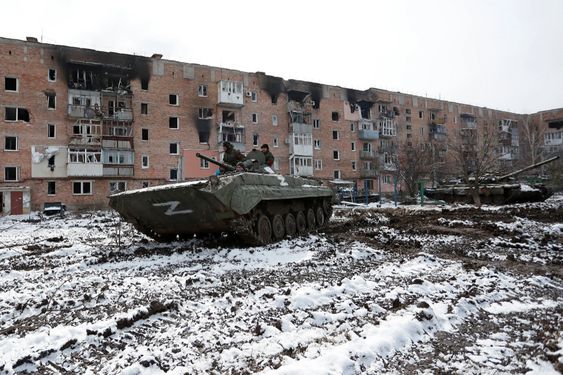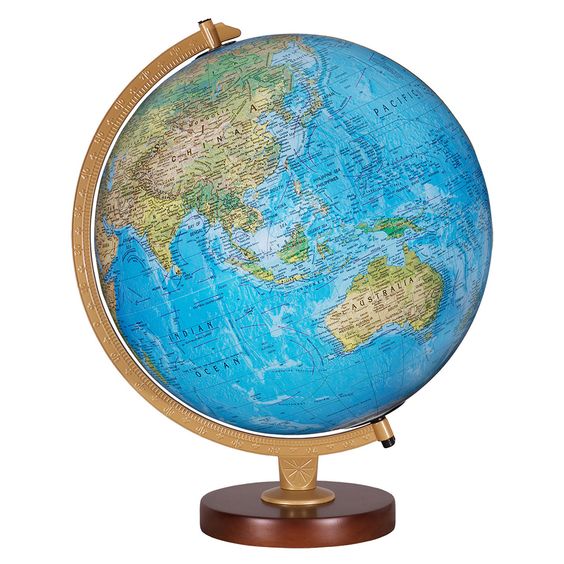
The Ukraine War still rumbles on and millions of Ukrainians are without power and water this winter. The threat of dangerous escalation is a constant concern.
By Tom Arms
Phew! Europe now has enough gas to see it through the winter and energy prices are starting to drop. Employment is more or less stable. Interest rates and inflation appear to be plateauing. The Ukraine War is settling in for the winter. NATO and the EU are united against Putin who shows signs of starting to unravel and Christmas is a coming.
Now, inhale and draw that sigh of relief back in. All the above is a temporary reprieve. Another metaphor could be the eye of the storm or false dawn.
The Ukraine War still rumbles on and millions of Ukrainians are without power and water this winter. The threat of dangerous escalation is a constant concern.
The EU and Britain appear to have more or less weaned themselves off Russian gas, but only for the coming winter and at a cost which—combined with Covid and inflation—are likely to hamstring European economies for years to come.
The total cost of the pandemic bill is only just starting to be totted up—and it is staggering. The direct cost to the UK government is reckoned to be in the region of $450 billion, according to the National Audit Office. But that is nothing compared to what the RND (Germany’s spending watchdog) reports was spent by state and Federal German governments– $1.8 trillion. On top of that there is the $800 billion EU Covid Recovery Program.
On energy, an estimated $600 billion, has spent by EU governments on subsidizing energy prices, according to the Brussels-based think tank Bruegel.
Then we come to the war in Ukraine. Back in July President Volodomyr Zelensky estimated that it would cost $750 billion to rebuild his country. Then there are the current ongoing costs for humanitarian, economic and military aid which has so far easily exceeded $10 billion for the EU and UK. And, to paraphrase the American Revolutionary War hero John Paul Jones, the Russians and Ukrainians appear to have just begun to fight.
A big chunk of all this money has been borrowed which means that it has to be paid back. And with the rise in interest rates the cost of that borrowing has risen significantly. Already several countries—including the UK, Spain, Italy, Greece, France and Slovakia—already have borrowings at around the 100 percent of GDP level or above. The EU has waived its requirement that borrowings be kept below 60 percent of GDP.
All of the above means that the UK government and EU governments will have to spend less and tax more for the foreseeable future to pay off mounting debts. So there will be less money for investment in climate change projects, education, public services, physical infrastructure, overseas aid…. All of which is required for economic growth which is the preferred source of governments increased revenue.
Many international financial commitments—such as defense spending and aid—are tied to a percentage of GDP. In a recession GDP decreases and so the commitments are reduced in real terms. This means less money for developing countries which will only increase migration to Europe from the Middle East and Africa as well as creating greater instability in the developing world.
At the moment NATO—Europe and America—are totally committed to the defense of Ukraine. In fact, they are more united then many pundits forecast. But that may change with a Republican-controlled House of Representatives holding the congressional purse strings.
Europeans have other concerns about their relationship with America which can be summed up in two words—China and protectionism. Washington regards Beijing as big threat as Russia, if not bigger, and wants a European commitment to oppose Chinese expansion equivalent to America’s commitment to oppose Russia. The problem is that neither the UK nor the EU have historically shared America’s antipathy towards Communist China; they are much more closely tied to the Chinese economy; and China is a faraway country.
The Ukraine War and fear of over-dependence on Chinese manufacturing has spurred a bout of global protectionism (aka economic security). This is especially the case in the US. It started with Trump and has been continued by President Biden with his $430 billion bill for massive subsidies to promote the semi-conductor business and bring offshore companies home. Brussels is seriously worried that the bill will drain European companies, capital and brains, and that this will put a strain on Trans-Atlantic relations and, by association, the NATO alliance.
 World Review
World Review
- China’s President Xi jinping is in the traditional dead end political alley. Mass demonstrations and protests have prompted suggestions from government sources that Beijing is on the cusp of seriously relaxing its zero-covid strategy. But health officials reckon that if he does it could result in 680,000 deaths before the end of winter, according modellers at The Economist. On the other hand, if Xi fails to relax his Orwellian approach to dealing with the pandemic then the economy and quality of life will seriously suffer and more protests, riots and demonstrations will follow. This will undermine Xi’s claims that only he and the Chinese Communist Party can deliver prosperity and stability. Xi’s current problems also threaten Chinese claims that their political model is better-equipped to deal with problems than the corrupt West. Xi has only himself to blame for his difficulties. He has insisted on using Chinese-made vaccines instead of the more effective Western alternatives and failed to thoroughly vaccinate the elderly who are more likely to contract the disease and require the greatest care when they do so, thus leaving himself with the unpalatable choice of mass lockdown or mass infection.
- President Joe Biden followed up the visit to French President of Emmanuel Macron with half an olive branch to Vladimir Putin: “I’ll meet and talk with you if you are prepared to discuss ending the war in Ukraine.” Sure, replied Putin, as long as the end is on my terms. That, of course, would mean surrender and defeat for Ukraine and its Western supporters and just demonstrates that Putin has left himself with only two options—total defeat or total victory. The former seems the most likely at the moment. Neither NATO nor the Ukrainian people show any signs of cracking and China appears to becoming increasingly disillusioned with their Kremlin ally. But more importantly, so are the Russian people. According to Meduza, an independent Russian investigative news website, a recent Russian government survey showed that support for the “special military operation” has plummeted from 57 percent in July to 25 percent last month. The big drop is blamed almost entirely on Putin’s decision to send another 300,000 Russian men to the Ukrainian front. The returning body bags (6,000-plus according to the Russians and 25,000-plus according to the British Ministry of Defense) are having an impact. But there is no sign of a Russian let-up. This week Defense Minister Sergei Shoigu said that military spending would increase by 50 percent next year from four to six percent of GDP.
- French President Emmanuel Macron can stick a Yankee Doodle feather in his cap following his state visit this week to the US. His was the first state visit of the Biden Administration. It was also Macron’s second such visit to the US (Trump invited him too). These two signal honours indicate that France—not Germany or Britain—is the European country to which Washington attaches the greatest importance. This is for several reasons. The British cousin has reduced its standing by leaving the EU and alienating Americans with its position on Northern Ireland. Germany is the EU economic giant but remains a military minnow and Chancellor Olof Scholz has so far failed to fill the over-sized shoes of Angela Merkel. France in contrast has the EU’s largest defense force and its Ukraine policies are close to those of Washington. On top of that, France is alone among European nations, in having possessions in the Indo-Pacific region, which, in American eyes, gives France a stake in containing Chinese expansion.
- The European Commission appears to have finally run out of patience with Hungary’s Viktor Orban. This week it announced that it was holding back $14 billion in regional aid and covid loans because of his government’s anti-democratic measures. It should be remembered that the European Union is a democratic club. To benefit from membership governments have to agree to follow democratic rules. Orban and his Fidesz Party have been moving towards what the European Parliament calls an “electoral autocracy” ever since it came to power in 2010. It has rewritten the constitution and redrawn the political map to make it almost impossible for political opponents to win an election. The judiciary has been packed with Orban supporters and the media is now almost completely controlled by the Fidesz Party. Billions in EU funds are alleged to found their way into party coffers or the bank accounts of Orban’s family members. On top of that, Hungary continues to drag its feet on support for Ukraine and recently attacked Volodomyr Zelensky’s government for discrimination against ethnic Hungarians. The EU decision could go either way. With Hungarian inflation running at 20.10 percent (as of September), Orban desperately needs the cash. But on the other hand, he could attempt to turn the Commission’s decision to his advantage by using Brussels as a scapegoat for his own failings.
- South Africa—the continent’s second largest economy– is not having much luck with its post-Mandela presidents. Jacob Zuma was more or less a wash-out. He was forced out of office in 2018 amidst claims that he had used government funds to upgrade his farm and allowed the South Africa government to be “corruptly captured” by the powerful Gupta family. Since 2018 he has been in an out of prison on contempt of court charges and has yet to be tried for corruption. His successor, Cyril Ramaphosa, was seen as the poster boy for the rule of law and constitutionalism. But now that poster has been smeared. An independent commission reported this week that he too may have violated South Africa’s constitution. Allegations centre on $508,000 stuffed in a sofa, an unreported theft and a herd of buffaloes that was reported sold but never left his farm. The South African parliament will on Tuesday debate what has been dubbed “farmgate” and later this month the ruling ANC will hold leadership elections. These were meant to be a routine re-election procedure, but that is now in doubt.
___________________
 Tom Arms is foreign editor of Liberal Democrat Voice and author of “America Made in Britain.”
Tom Arms is foreign editor of Liberal Democrat Voice and author of “America Made in Britain.”